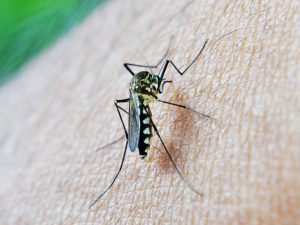Understanding mosquito and tick behaviors – their attraction to carbon dioxide, heat, moisture, and specific habitats – is crucial for effective mosquito and tick control. Targeted strategies involve removing breeding spots (e.g., stagnant water), using natural repellents, maintaining a clean outdoor space, sealing entry points, and, in severe cases, applying chemical insecticides or professional services. Proactive measures like regular maintenance and community collaboration are essential during peak seasons to prevent infestations and reduce disease risk.
Mosquitoes and ticks are persistent pests that can spoil outdoor enjoyment. Effective mosquito and tick control demands a strategic approach, as these creatures exhibit distinct behaviors and prefer specific habitats. Understanding their habits is key to prevention. This article explores various methods, from natural repellents and environmental management to chemical interventions, offering a comprehensive guide for seasonal strategies and knowing when to call in the professionals for optimal control.
Understanding Mosquito and Tick Behavior: Identifying Their Habits and Preferences
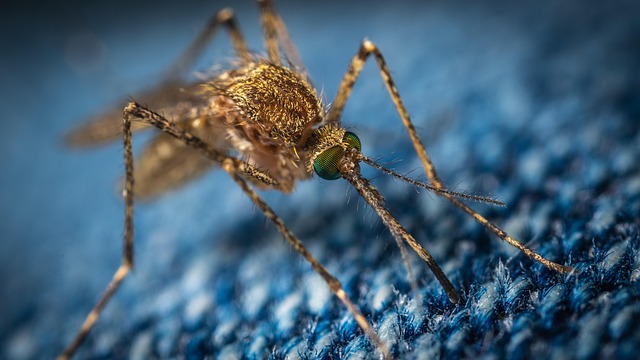
Understanding the behavior and preferences of mosquitoes and ticks is crucial for effective mosquito and tick control. These arthropods are highly adaptable and exhibit distinct habits that influence their distribution and impact on human health. Mosquitoes, for instance, are primarily attracted to carbon dioxide, heat, and moisture, making them more prevalent in areas with high human activity during twilight hours. They also tend to breed in stagnant water bodies, which underscores the importance of eliminating such breeding grounds.
Ticks, on the other hand, exhibit a unique behavior known as “questing,” where they actively wait on grass or foliage for potential hosts to pass by. Their preference for specific habitats varies by species; some thrive in humid forests, while others are more common in dry, grassy areas. Ticks also possess a remarkable ability to sense body odor and chemical cues, which guides them to select suitable hosts. Recognizing these behaviors is vital for implementing targeted mosquito and tick control strategies.
Common Areas Prone to Infestations: Where Mosquitoes and Ticks Thrive
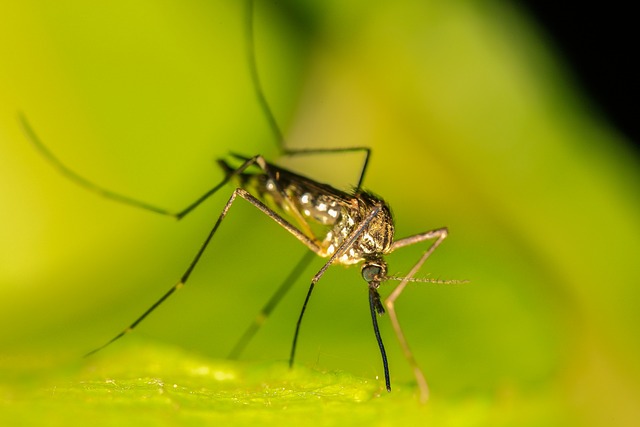
Mosquitoes and ticks are prevalent in areas with ample moisture and shade, making them a common sight in certain parts of your property. For mosquitoes, standing water is a magnet; clogged gutters, bird baths, buckets, and flower pots all provide ideal breeding grounds. They also thrive in lush greenery, such as dense vegetation, tall grass, and untended landscaping, where they can easily hide and rest between feeds.
Ticks, on the other hand, prefer environments with high humidity and frequent host movements, making grassy areas, woods, and brushy undergrowth their ideal habitats. They often attach to animals or humans passing through these spaces, which is why outdoor activities in affected regions require vigilance against these tiny parasites. Effective mosquito and tick control measures involve targeting these common breeding and resting spots with appropriate treatments, ensuring a safer outdoor experience.
Natural Repellents and Prevention Measures: A Holistic Approach to Control
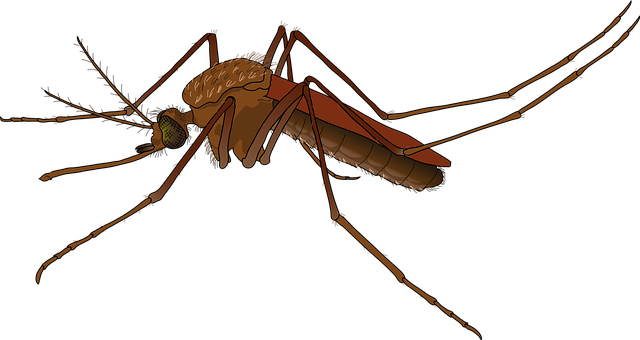
When it comes to mosquito and tick control, a holistic approach that leverages natural repellents and prevention measures offers a safer and more sustainable solution. Plants like citronella, lavender, marigolds, and lemongrass are known for their ability to ward off these pests due to their strong scents. Incorporating these fragrant plants in your garden or using essential oils derived from them can create a natural barrier against ticks and mosquitoes.
In addition to aromatic defenses, maintaining a clean and tidy outdoor environment is crucial. Regularly removing leaves, cutting grass short, and trimming bushes helps eliminate hiding spots for ticks. Additionally, sealing entry points in homes and using fine mesh screens on windows and doors prevents these pests from getting indoors. These preventive measures, combined with natural repellents, provide an effective strategy for managing mosquito and tick infestations without resorting to harsh chemicals.
Chemical Treatments: Effective Solutions for Severe Infestations
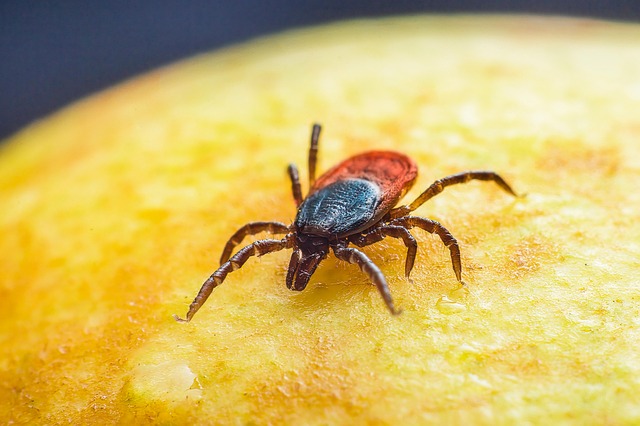
In cases of severe mosquito and tick infestations, chemical treatments offer effective solutions. These professional interventions are designed to target and eliminate both adult insects and their nymphs, disrupting the breeding cycle and reducing population numbers significantly. Common methods include spraying and dusting with insecticides that are specifically formulated to combat these pests.
The application of these chemicals is typically done by trained professionals who understand the safe use and handling of such substances. They employ targeted strategies, focusing on areas where mosquitoes and ticks congregate, like tall grass, underbrush, and nearby water sources. This precision ensures minimal impact on non-target organisms and the environment while providing swift and lasting relief from these irritating and potentially harmful insects.
Seasonal Strategies: Preparing for and Managing Peak Mosquito and Tick Activity
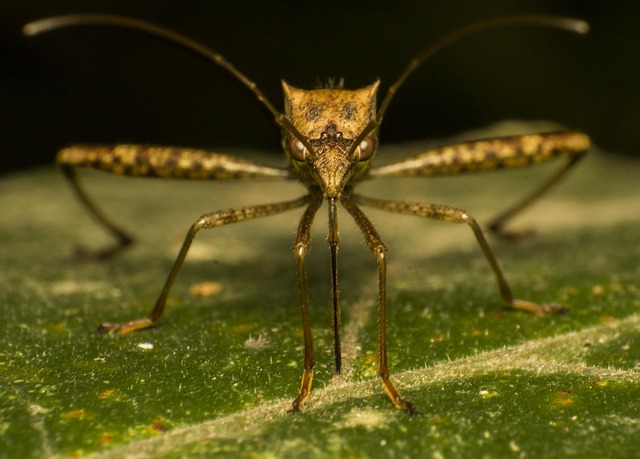
As seasons change, so does the activity level of mosquitoes and ticks. In preparation for peak seasons, implementing proactive strategies is key for effective mosquito and tick control. During warmer months, when these pests are most active, regular maintenance becomes crucial. This includes eliminating standing water, where mosquitoes breed, as well as applying appropriate repellents and treatments to outdoor spaces.
For homeowners, seasonal upkeep involves inspecting and sealing entry points, trimming vegetation, and using professional-grade insecticides. Community efforts can also make a significant impact by fostering collaboration for larger-scale treatments in public areas. By combining individual precautions with collective action, we can effectively manage and reduce mosquito and tick populations during their most prolific periods.
Professional Help: When to Seek Expert Assistance for Comprehensive Control

When dealing with a severe or persistent tick infestation, it’s often best to seek professional help for effective mosquito and tick control. While there are DIY methods and products available, professional exterminators bring specialized knowledge and tools tailored to tick eradication. They employ advanced techniques, including targeted treatments and barrier sprays, to ensure comprehensive control and prevent future infestations.
Experts in tick control also offer ongoing monitoring and maintenance plans, which can be particularly valuable for properties with high tick activity or those seeking long-term protection. Their expertise ensures that every nook and cranny is treated, reducing the risk of missed ticks and minimizing the potential for disease transmission.
